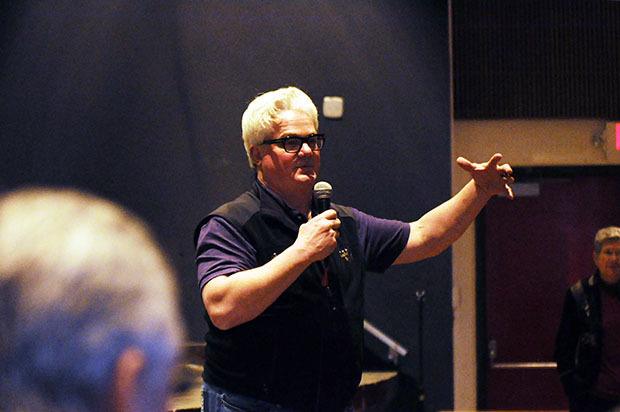MARSVILLE – A series of bomb threats are making it even harder for Marysville-Pilchuck High School students to recover from the cafeteria shooting that killed five students Oct. 24.
School district Recovery Director Mary Schoenfeldt said at a community meeting at the school Monday that the threats are not unexpected. Such threats occurred at other school shootings.
“There is not a single school that has not been plagued by bomb threats,” she said, adding in some cases such threats came within three weeks. “I was surprised it took three months.”
An issue arose in one of the early bomb threats when the school was evacuated and students were taken by buses to the same church to meet up with parents in a situation eerily similar to what happened Oct. 24.
Schoenfeldt said she did not know that was going to occur.
Though counselors have been doing all they can, Schoenfeldt admits, “It’s not enough, and it can never be enough.”
Marysville Police Chief Rick Smith said the law is doing all it can to track down those responsible for making the prank calls.
“The reality is that we have a bunch of knuckleheads out there that will make a threat” for self-promotion or just to get a day out of school, Smith said.
He said if everyone works together, the city can get through this tragedy. It will take time. He used the analogy of the Seattle Seahawks NFC Championship Game against the Green Bay Packers Sunday.
“We are in the second quarter,” he said. “I always believed there was a way. I believed there was a way to win the game. I believed in my teammates. It truly is a metaphor of what we’re going through.”
Smith said police have to take each threat as if it is real. He added each threat became more outlandish than the previous one.
Also at the meeting, Dr. Robert Macy, an expert on suicide prevention, talked to the crowd of about 100 people. He has been hired recently to screen children who are still struggling from the tragedy three months ago.
“Our role is for people in the community to become the gatekeepers of help,” Macy said, adding they will be training local people to deal with the issues.
“We can’t erase the tragedy but we can use that memory as our strength,” he said.
Rather than post traumatic stress, Macy used the term post traumatic growth.
“To make something powerful out of something that looks like a complete mess,” he said.



